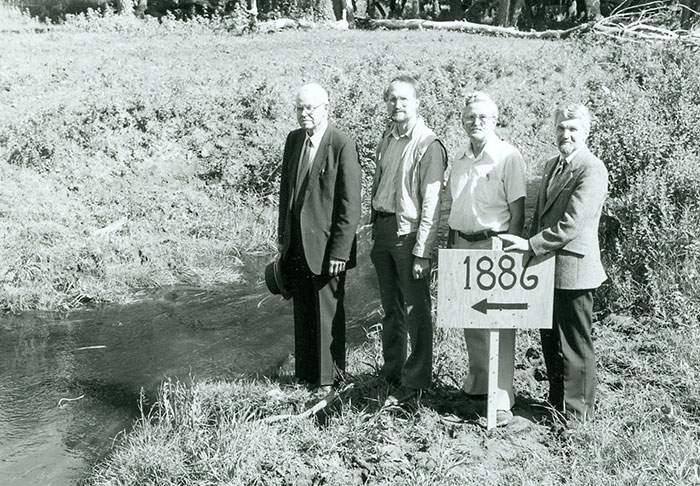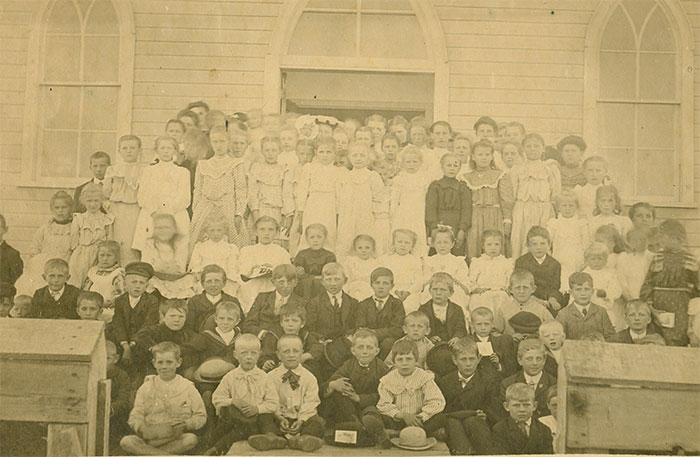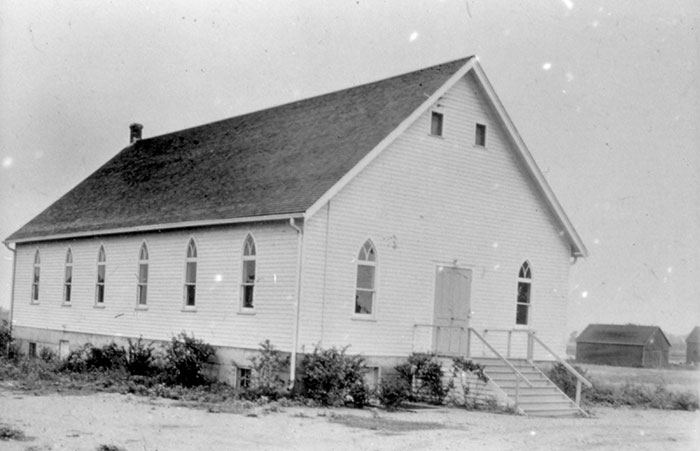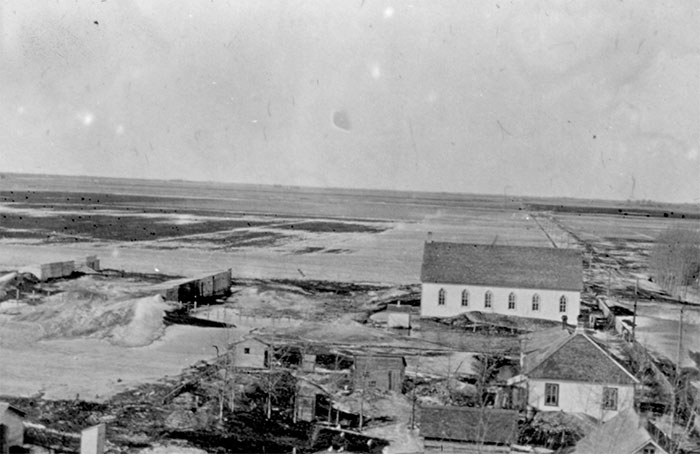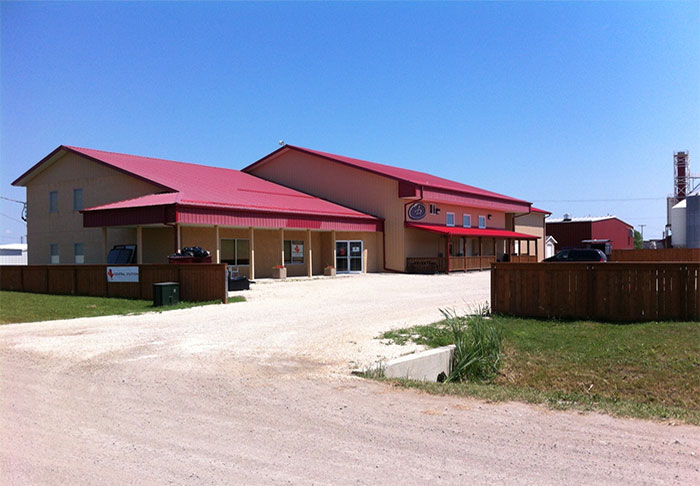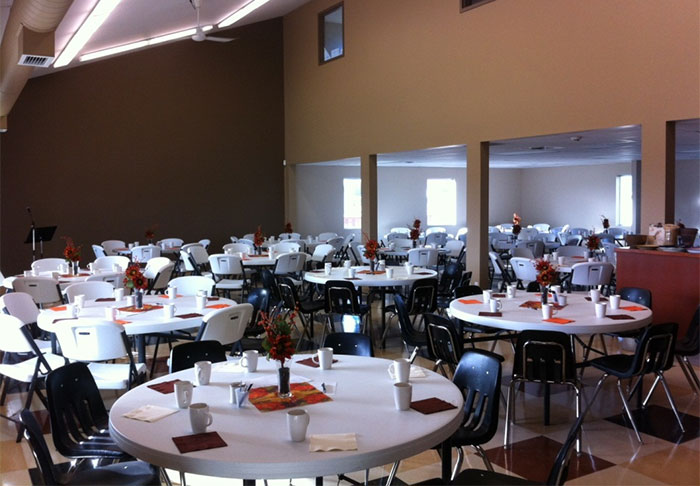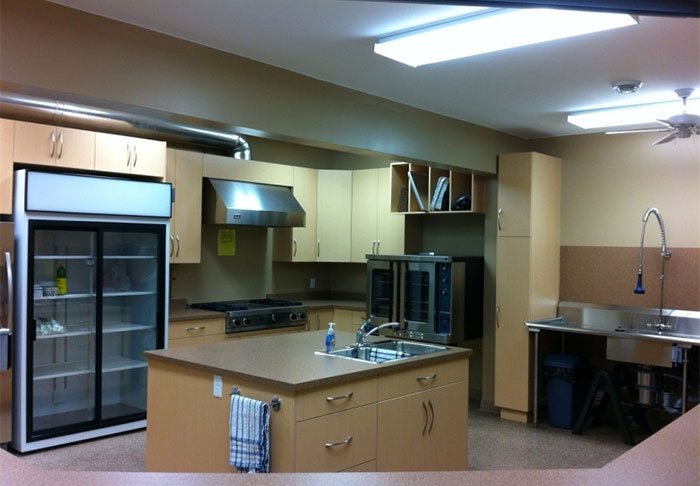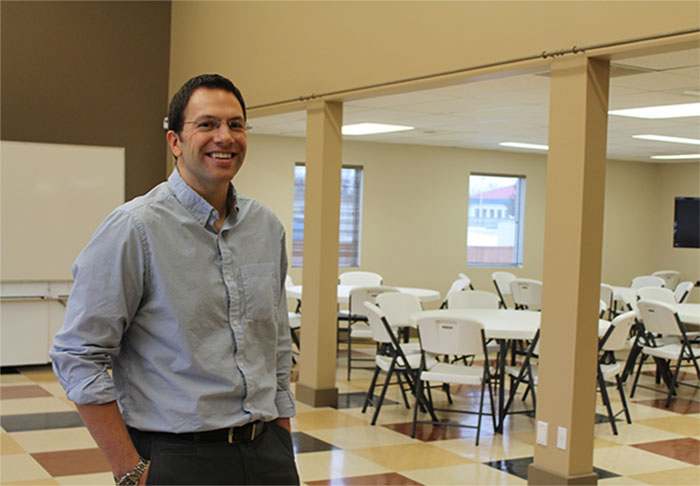Winkler celebrates 125 with local and national initiatives
“What is an old church capable of?”
That’s the question at the heart of 2013’s 125th anniversary celebrations of Winkler Mennonite Brethren Church, the oldest MB community in Canada.
It’s led WMBC to multiplication thinking locally and nationally: a partnership with a new MB plant in Victoria, and the creation of a community centre in Winkler to serve those in need with clothing, community resources, and a cup of coffee and listening ear.
From member culture to mission culture
It’s all part of a shift from member culture to mission culture, from church as a building to church as a body of people who have families, friends, and co-workers.
“WMBC is 125 years old, but the average age of members is 40,” says WMBC lead pastor Phillip Vallelly. “What are they challenged by?”
A 2012 survey of 260 WMBC members revealed many feel the desire to share their faith with others, but struggle to find the opportunity during a hectic schedule.
“Marriage, career, mortgage, kids, – how do they live on mission?” Valley asks.
He finds the answer in the midst of those commitments.
“We are invited to workplaces, sports games, schools,” Vallelly says, adding the people of WMBC are missionaries whose paycheques don’t necessarily come from the church.
Missional culture is actually quite simple, says Vallelly; it’s about talking with co-workers, taking breaks on purpose, even helping weed a neighbour’s garden or going to community events: get out with people and be intentional with the gospel message.
“Hi, how are you?” may be all it takes to make a connection that leads to opportunities to share how God is at work in our lives or the life of someone we know.
From self to Son
“We have to take ownership of our faith,” Vallelly says. “We can’t rely solely on the church. WMBC is merely the place where the church gathers, but whenever we leave the building that’s when church happens.”
Vallelly explains member culture tends to turn inward, producing a mindset that focuses on ourselves, making church about singing on Sunday and keeping an exclusive identity. But the shift to mission culture is a response to the gospel, and God’s Son’s mission to renew the world.
“It’s not our mission to make everyone a member of WMBC and have the biggest church,” Vallelly says. “Our goal is to represent Jesus when we leave those doors.”
Whether a church is starting or celebrating 125 years, the calling is the same, Vallelly says. For the past 125 years, WMBC has been called to be Christ’s disciples and to lead others to be disciples as well, and that’s a timeless message, modelled by its founders, that WMBC would like to see passed on to future generations.
A history of growth
Founding minister Heinrich Voth of Mountain Lake, Minn., came to southern Manitoba in 1883 after delegates at the MB conference in Nebraska expressed concerns about the spiritual condition of the Mennonite church in Manitoba.
He performed the first baptism in Canada by a Mennonite Brethren minister on May 30, 1886, and the church formally organized in 1888.
The congregation drew villagers longing for a deeper spiritual life. In 1903, the MB church of Winkler was officially incorporated with the government of Manitoba, and the church grew, expanding several times. The building used today was completed in 1988 when WMBC celebrated its centennial by hosting the national MB conference.
In 2010, WMBC staff conducted a survey among key community stakeholders and leaders in education, social services, and churches, and began to see the demands a growing city was putting on services struggling to address issues like poverty and equipping newcomers. It was clear a central location to refer people to community resources was needed and Central Station Community Centre officially opened its doors in 2012.
The centre offers essentials like clothing, phone access, food cupboard referrals, and baby supplies. Though WMBC initiated the centre, the church hopes it will become a fully community-driven facility in the future.
Still doing new things
As they mark 125 years, WMBC is walking alongside a young MB church plant, Beacon Communities Church, located on Vancouver Island. The C2C Network plant, officially launching this fall, aspires to make a difference in James Bay by developing community through worship at the larger church services, barbecues and potlucks at mid-sized gatherings in the neighbourhood, and smaller home-based Bible studies and spiritual care.
“WMBC is excited to be a part of helping this new church community because it is a way of renewing our commitment to God to continually live missionally,” Vallelly says, encouraging a culture that takes its faith out into families, workplaces, and neighbourhoods.
In honour of the anniversary, WMBC is holding a celebration concert featuring Brian Doerksen Sept. 7, and a celebration worship service Sept. 8 with guest speakers Willy Reimer, executive director of the Canadian Conference of MB Churches, Joe Haynes, pastor of Beacon Communities Church, and worship by Brian Doerksen.
—Steven Sukkau is a reporter at a local newspaper in southern Manitoba. He’s a member of Winkler (Man.) MB Church, where he and his wife Kayla teach the high school Sunday school class.
A survey of 125 years:
On a warm afternoon May 30, 1886, at a shady turn of the Dead Horse Creek in southern Manitoba, Heinrich Voth of Mountain Lake, Minn., performed the first baptism in Canada by a Mennonite Brethren minister.
Voth first heard the call to Winkler at an MB conference in 1883 in Hamilton County, Neb., where delegates expressed concerns about the spiritual condition of the Mennonite church in Manitoba. The arrival of the railway brought innovation but also new vices into village life; the conference wondered if they had a responsibility to help.
Many Mennonites longed for a deeper spiritual life. A few started Bible study groups and began to sing gospel songs – even in harmony, which was considered sinful at the time.
“I do not want to die before I see how the Lord will build his kingdom in Manitoba and direct it into an orderly course,” Voth wrote to general conference leadership…. I have wept much alone.” Voth shook things up during his missionary journey; though many accepted this new faith and were rebaptized, in some cases, it resulted in excommunication.
The church continued to grow, and in 1903, the MB church of Winkler was officially incorporated with the government of Manitoba to include all MB members in Manitoba regardless of where they lived.
Mennonites fleeing revolution and civil war in Russia and Ukraine flooded the country in the 1920s, and the Winkler church grew rapidly. From 1923–1929, Manitoba received 2,081 households of Mennonites (some 6,800 people) aided in their flight by the fledgling Mennonite Central Committee.
In 1925, well-established financially and ready for a spiritual challenge, the Winkler congregation supported the launch of Winkler Bible Institute. When the school outgrew its space, WMBC purchased it as an annex for children’s and youth ministries, ladies groups, and other meetings.
The original building had moved from Burwalde to Winkler in 1898, and was enlarged twice before a new facility was built on a new site in 1947. The members of the Horndean church were accepted into fellowship upon its closure in 1983. The building used today was completed in 1988.
In 2010, based on the responses of a community stakeholders survey, WMBC developed the idea of a community resource centre to help meet the needs of their growing city. Central Station Community Centre opened in 2012, shares space with a youth drop-in centre, and acts as a hub for community-based programs working with agencies and churches to offer referrals, resources, and relational connections to local families.
